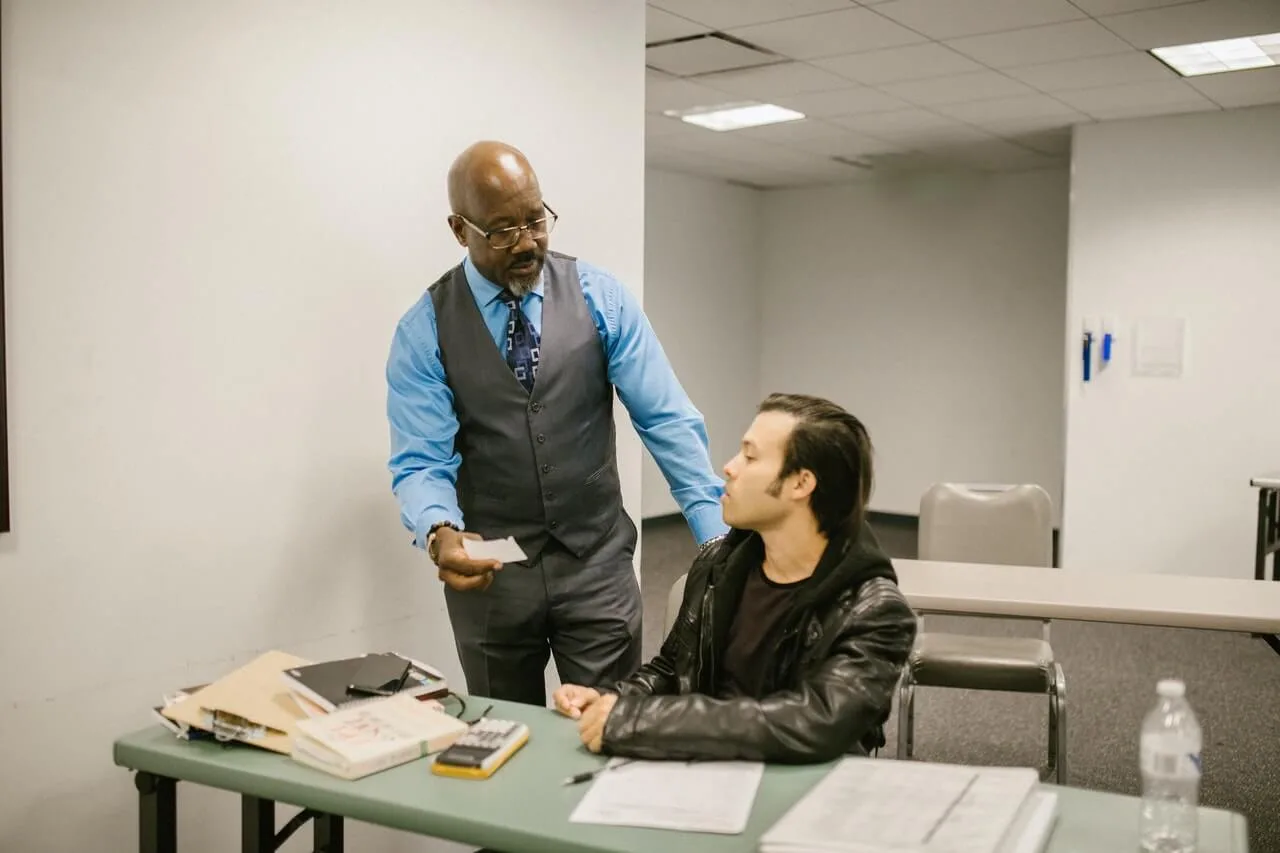However, after the exam, you may get summoned by your lecturer with claims that you cheated on your exam. Whether or not you cheated on that exam, you’re now in a precarious situation as your school reputation, and studies hang in the balance. What you do once you’re summoned will influence the outcome of your summon.
How to Prove You Didn’t Cheat on an Online Test
Learning how to prove to a teacher you didn’t cheat is the last situation any student wants to find themselves in. A cheating allegation of such magnitude can have dire consequences to your reputation and academic career. If you happen to get summon from your instructor accusing you of cheating, please follow these tips below, and you should be alright.
- Stay Calm and Don’t Act Irrationally
Once you get summoned, the first thing you need to do is stay calm. It might sound frustrating, but keep calm. We understand that you may be experiencing many emotions, but the last thing you want is to send your lecturer an indignant email or, worse, one full of insults or swear words.
If you do not add more disciplinary charges to your cheating allegation, such actions will hurt your defense. In addition, don’t go shouting about it on social media either. Instead, take deep breaths and calmly contemplate the next step to take.
- Read Through the Accusations
The next step is to go through the official accusation to understand what they’re accusing you of fully. The information will help you remember any activity you may have undertaken during this period and will help you properly defend why you acted in a certain way.
- Some of the vital information you need to have is:
- The specific time of the alleged claim
- What paper you were sitting for
- Behavior resulting in the claim
- Get Updated on School Rules and Guidelines
Another document you need to familiarize yourself with is the school rules and guidelines, especially those that focus on examination cheating. Being up-to-date with the information can help you identify whether or not you’re in breach of any school code of conduct. Acquainting yourself with this information will also help you form a great defense against the accusation
- Don’t Publicize Your Summons
Another thing that could have substantial damage to your defense is making your situation known. Posting your trial on Facebook or telling all your friends about it will only make it harder to defend yourself before the disciplinary panel. When you get summoned, make sure that your friends, classmates, or roommates don’t know about it; let the matter stay between you and the instructor.
- Hire a Student Defense Lawyer
Perhaps a significant action you can take is getting a student attorney to represent you during your hearing. You may think of this step as extreme, but it may work well in your favor. It can also save you from severe consequences you’d have been handed if you went at it alone.
Your student defense lawyer is the only person you should disclose all your information regarding the hearing, including the written statement and the evidence proving your innocence. These lawyers will most likely be familiar with disciplinary measures at your school. That means they know how best to defend you at the hearing.
- Prepare a Written Statement
Because these charges against you might be disciplinary, there will be a hearing in which both you and your instructor may be required to present your cases. After a presentation from both sides, the board will give a verdict. You will be required to develop a written statement and all evidence to prove your innocence.
Based on how your school handles any cheating allegation, you’ll develop a structure on which to base your defense. Below is a list of some of the information you’ll need to have before your hearing:
- A document showing the accusation from the lecturer (the summon email).
- Any form of communication with other students or instructors regarding your summon.
- A recording of the exam if it was recorded online.
- The institution’s rules regarding exam irregularities.
- A copy of the exam results in question.
- Other tests or assignments you’ve done related to the class.
It’s crucial to store all this information in a place only you can access it, such as your phone, laptop, tablet, or cloud account. Please do not give this information out to anyone except your student attorney as it may compromise your defense come the day of your hearing.
Prove You Didn’t Cheat on a Test with the Above Tips
You may or may not have cheated in your previous exam, but a cheating allegation from your instructor is not anything any student may want to be on the receiving end of. Despite this, it’s essential to learn how to prove you didn’t cheat on an assignment or a test. How you conduct yourself and plan for the hearing will determine whether or not these allegations will be dropped.











